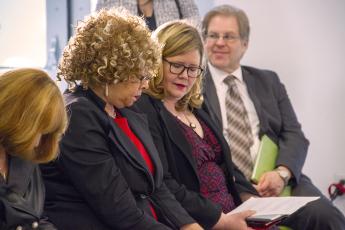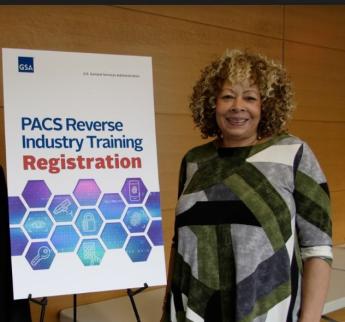Focusing on Healthy and Productive Industry Relationships - Empowering GSA’s Ombudsman
Post filed in: Acquisition
Editor’s Note: This is the fourth in a series of blogs about how GSA is fostering healthy and productive industry relationships. Be sure to read the first, second, and third posts.

GSA is a leader in designating and empowering a Procurement Ombudsman to provide an informal and neutral avenue for industry associations, vendors, and the GSA Acquisition Workforce to voice their concerns relating to procurement policies and practices. This role has given GSA insight into the barriers and challenges faced by industry, areas where improvements are needed, and a forum for greater dialogue.

Over the last year, GSA’s Procurement Ombudsman, Millisa Gary, hosted four reverse industry training events. Pioneered by our friends in the Department of Homeland Security, reverse industry training brings industry partners center stage, giving them the opportunity to talk to our workforce. They offer great context to help us understand how the acquisition process looks from the industry side of the table. Recent events focused on GSA Leasing and Construction, Multiple Award Schedules, government-wide Cloud buying and migration, and government-wide Physical Access Control Systems. Each session highlighted how our decisions increased or decreased prices, promoted competition, and made successful outcomes more or less likely.
While it’s very nice to have the conversation, the real value comes in any changes made as a result of the meetings. Thus, the good news is that we’ve already made some key business process changes from what we’ve heard. Notably, as of October 1, 2018, and based on feedback we received, the Automated Advanced Acquisition Program (AAAP) for leasing implemented longer firm terms and limited soft terms as of October 1. There’s more business process changes underway.
This is the fourth in a series of 2019 blogs about how GSA is fostering healthy and productive industry relationships. In my next blog I’ll share more about our efforts to reduce regulatory burden on industry.

 U.S. General Services Administration
U.S. General Services Administration
